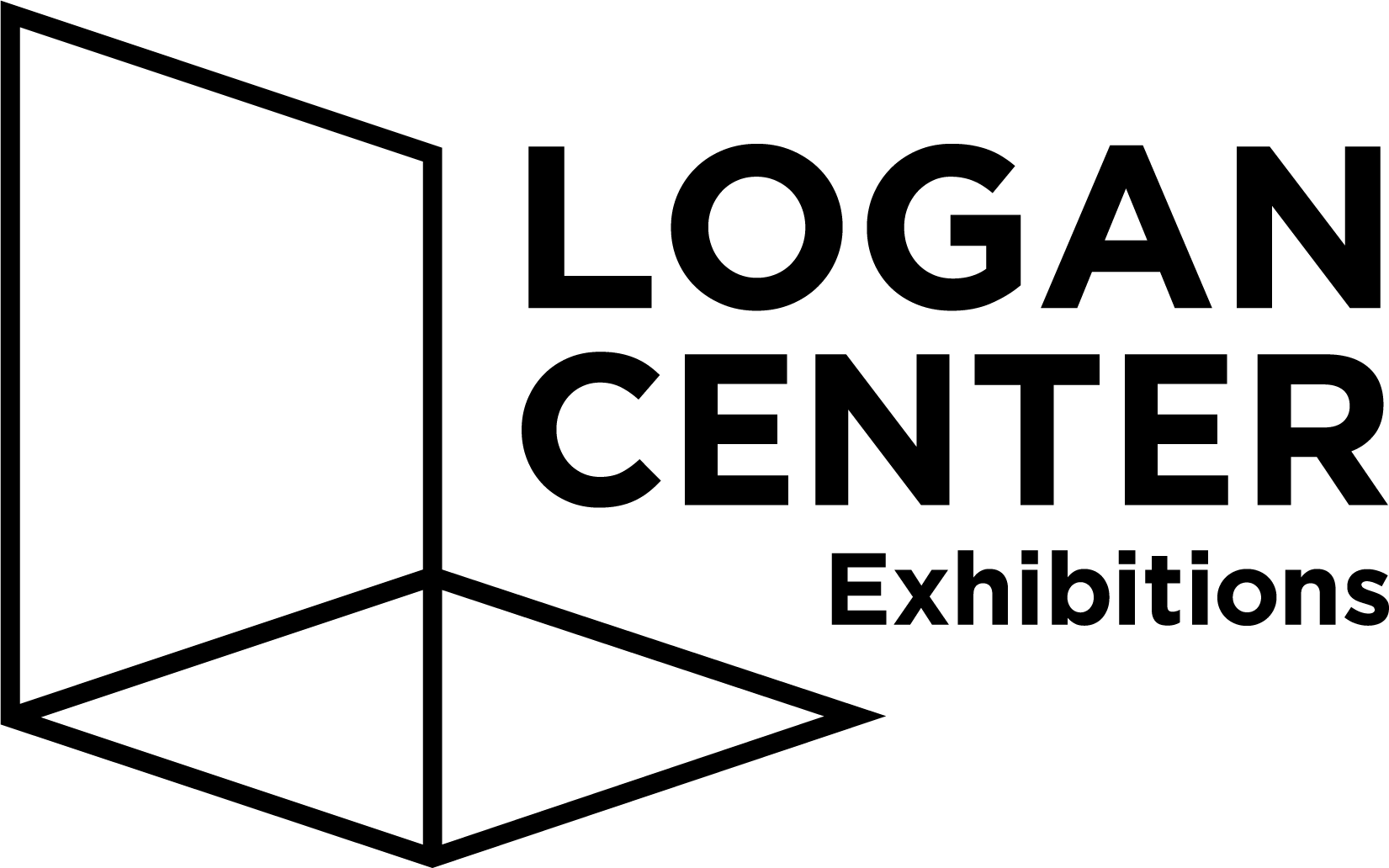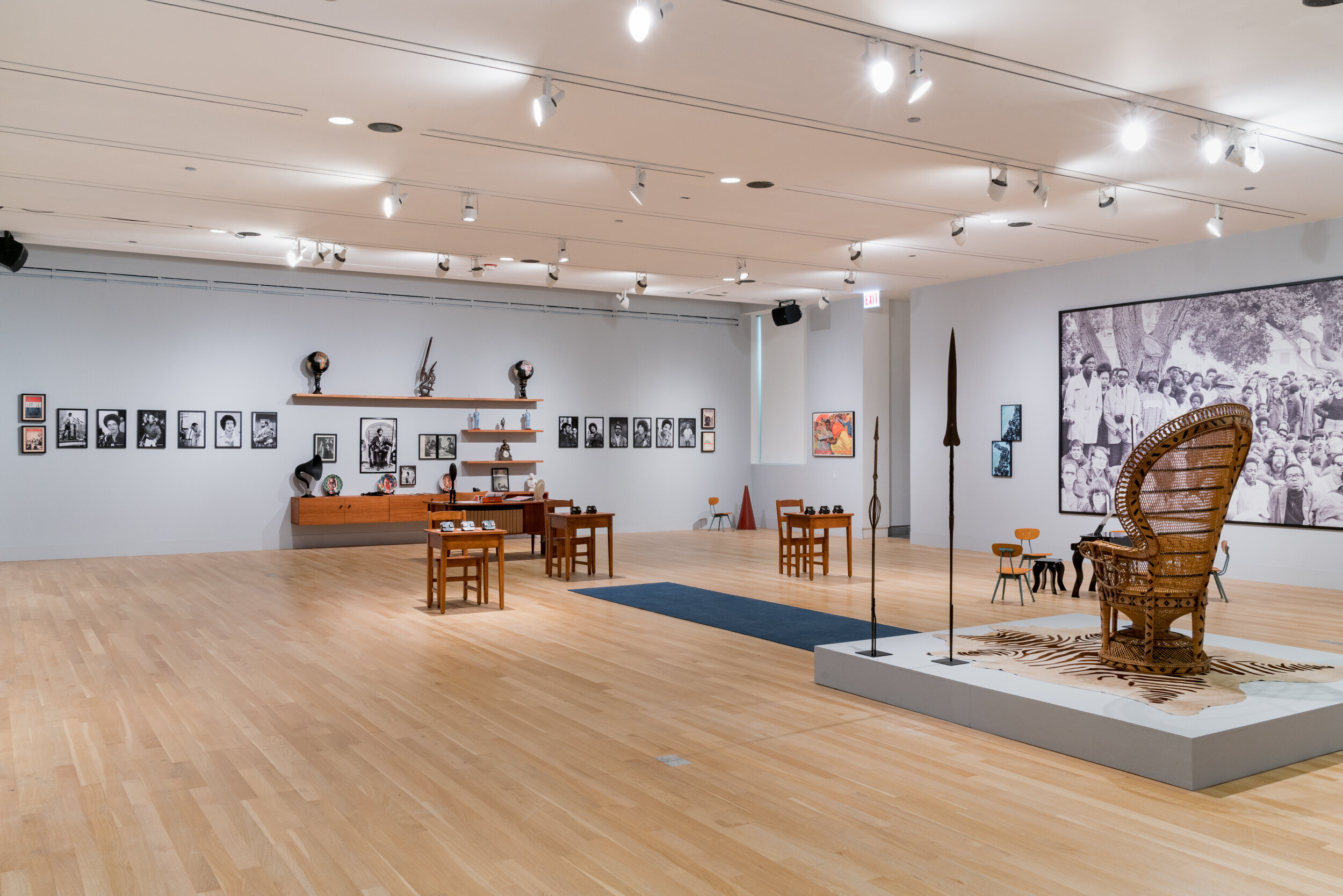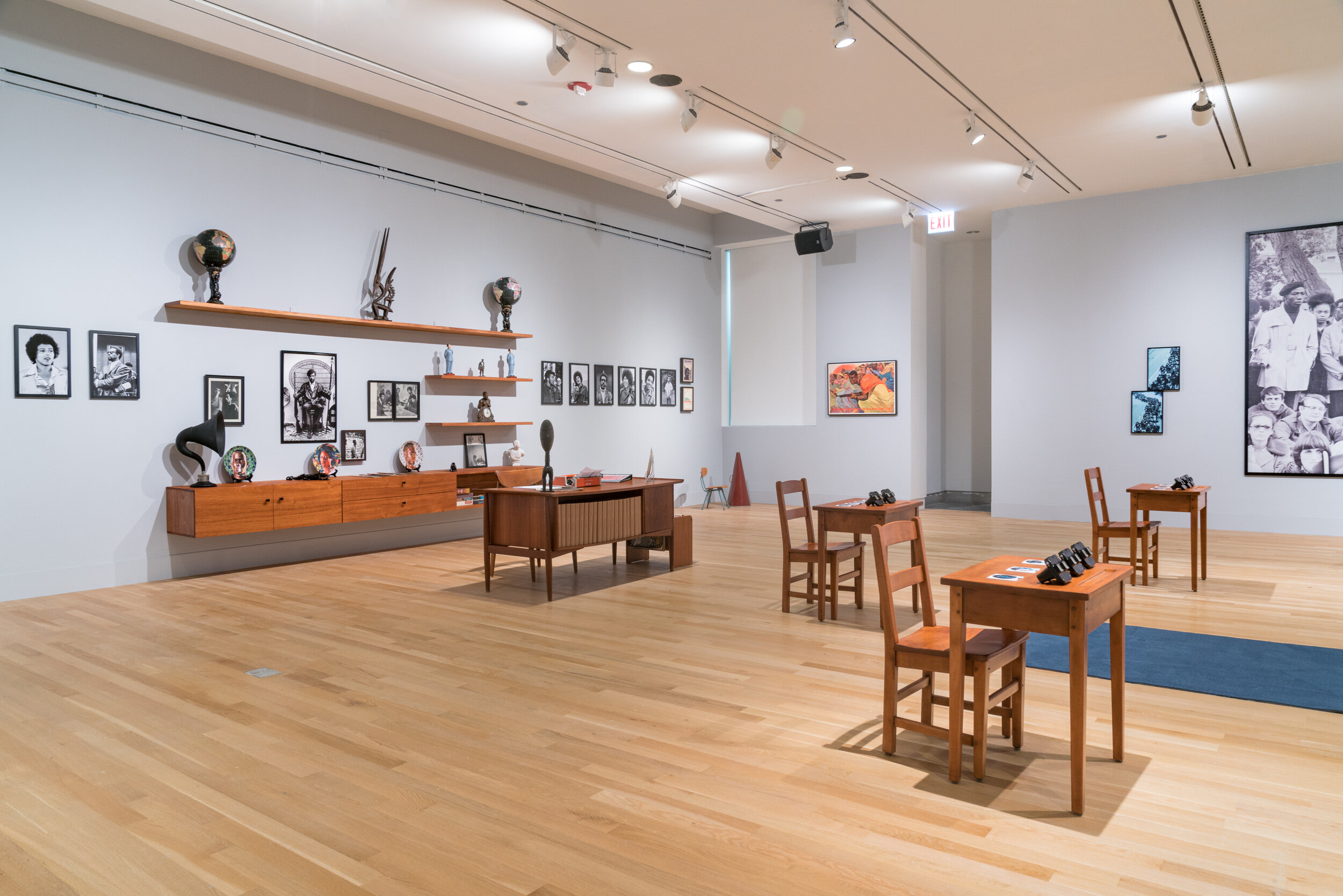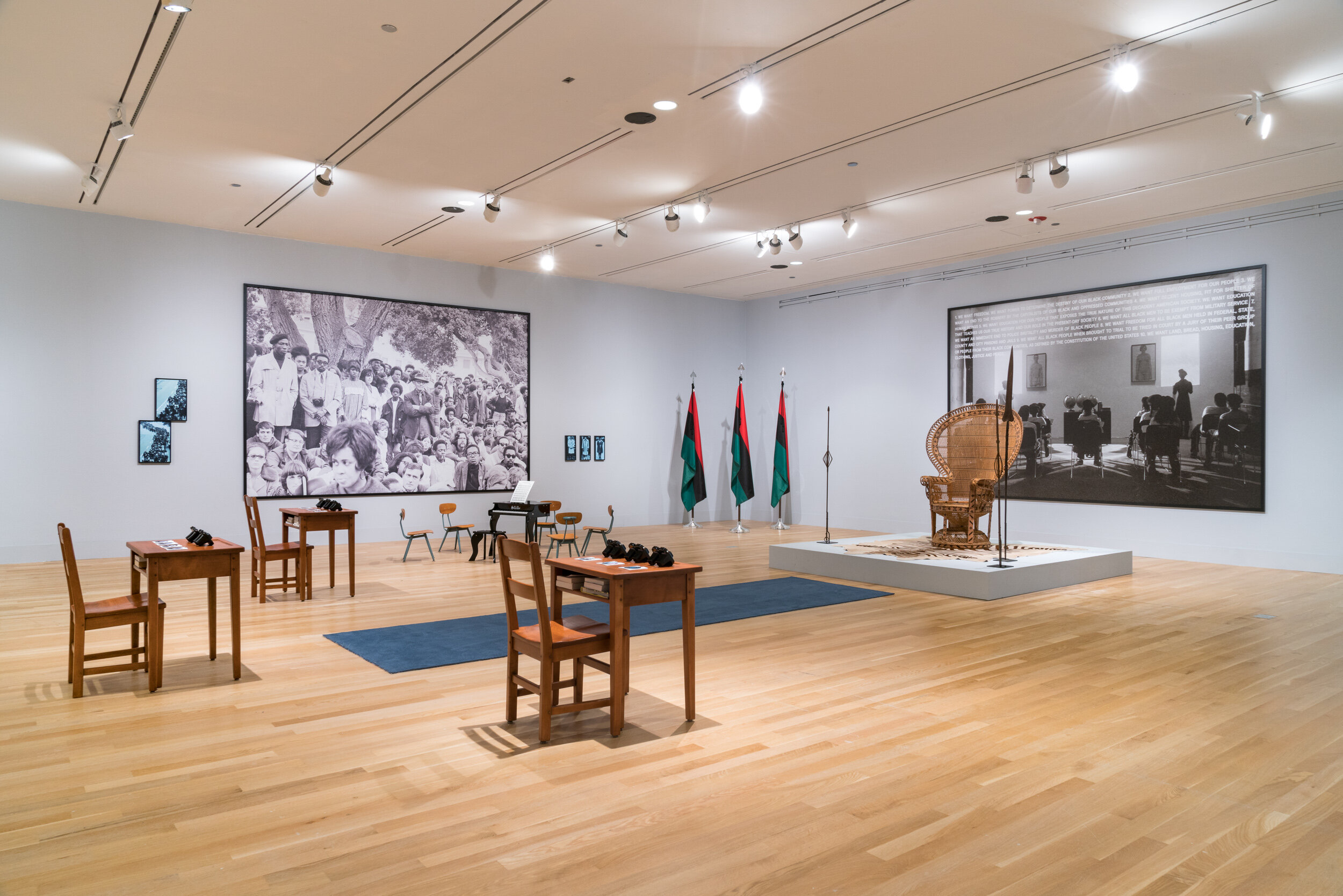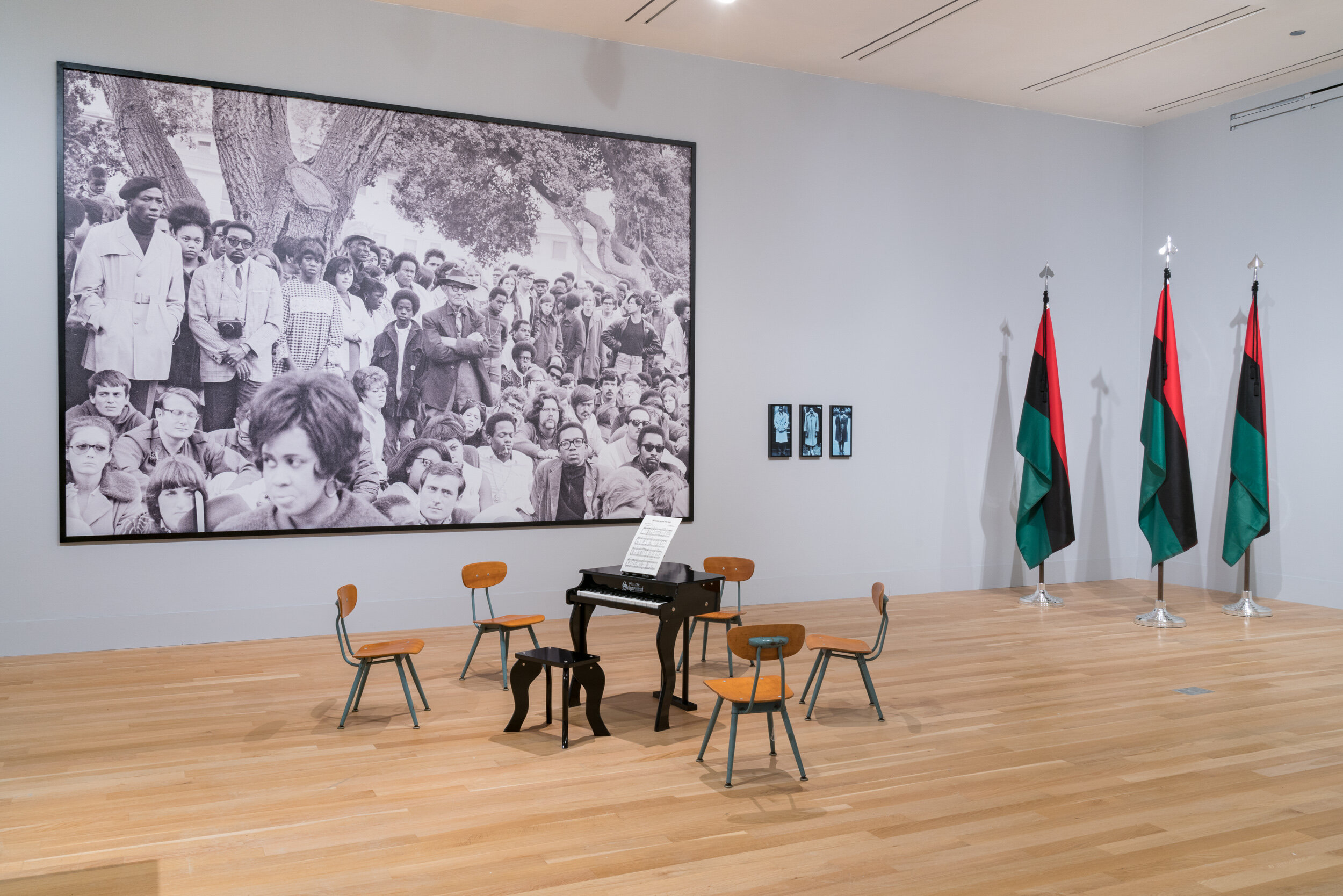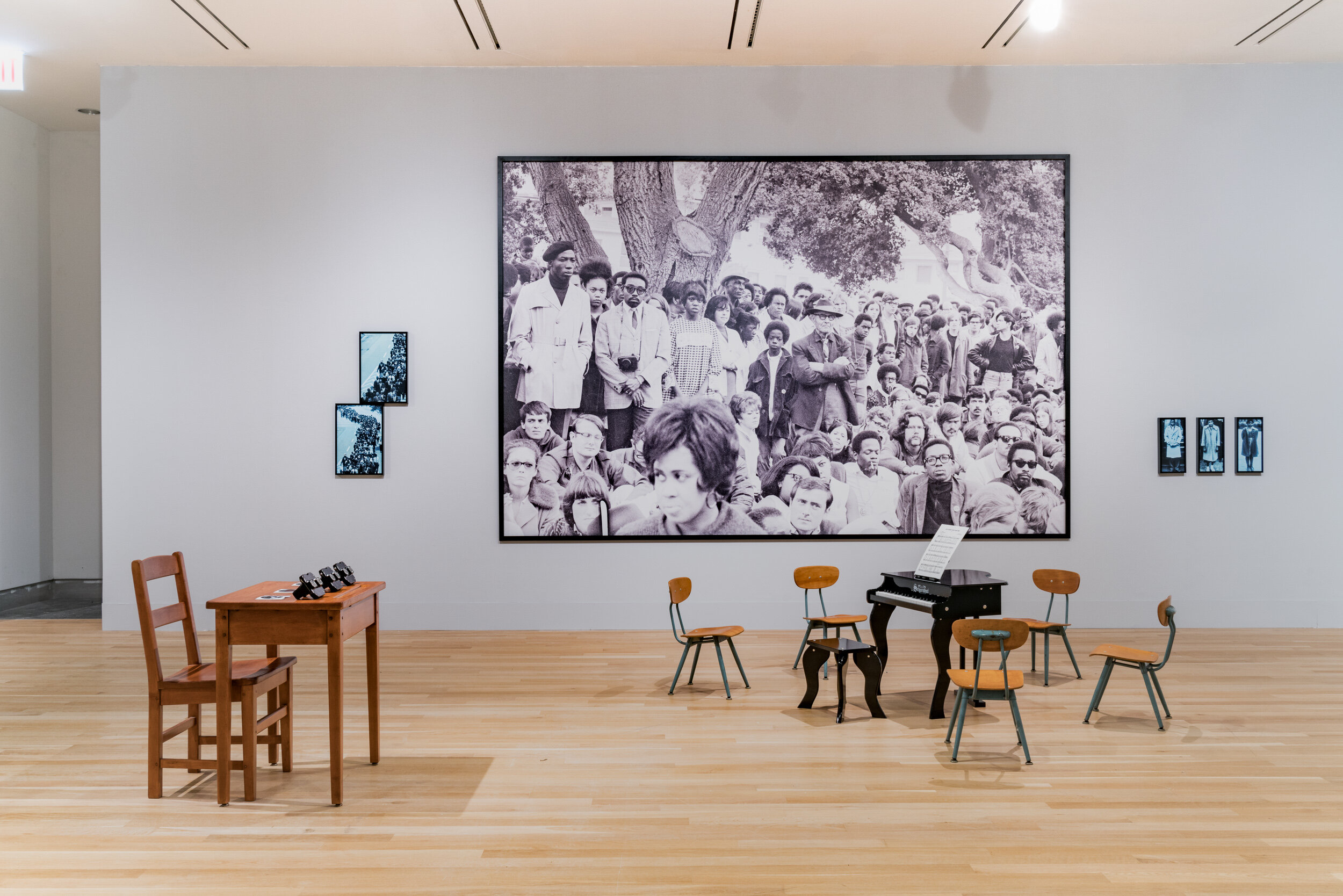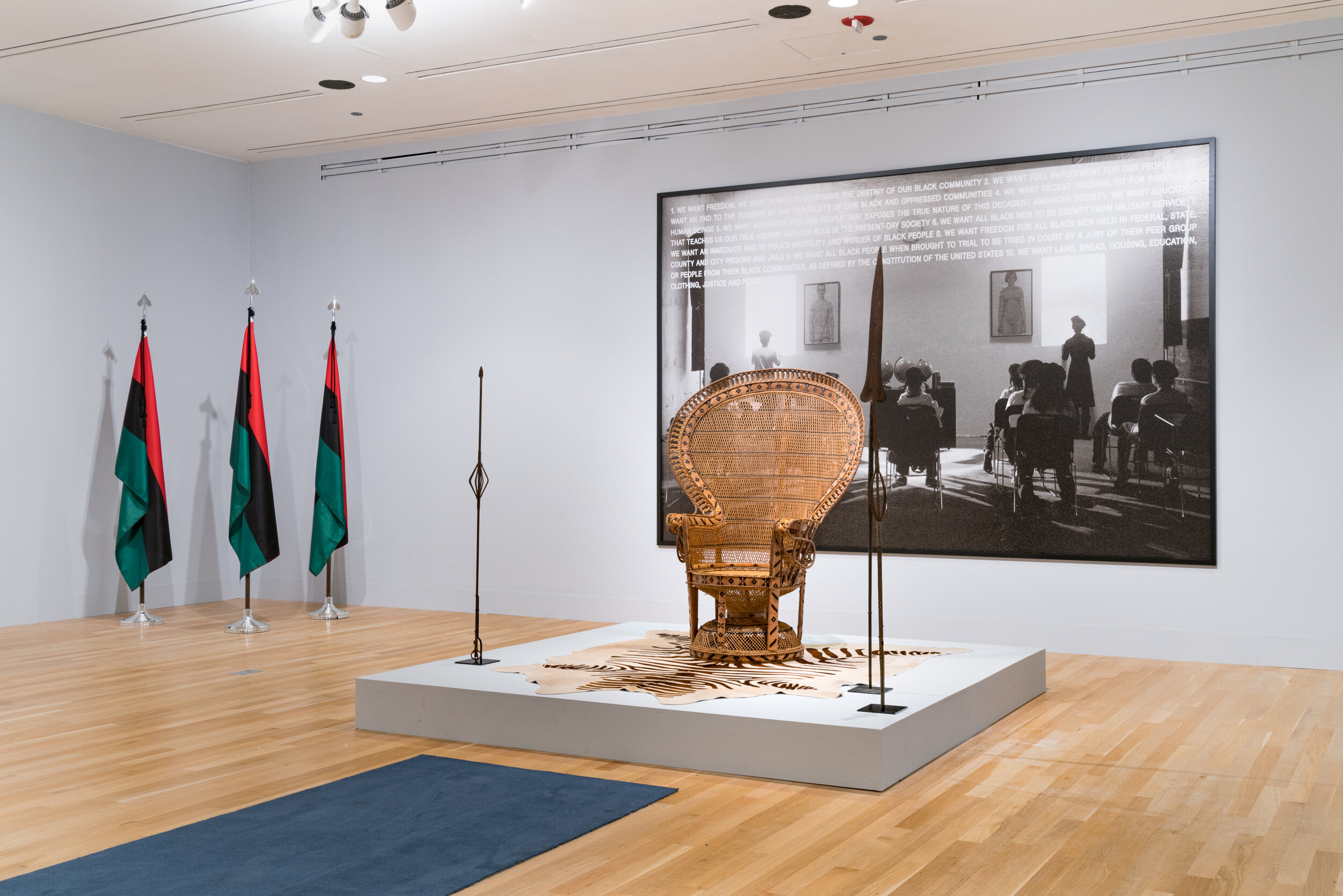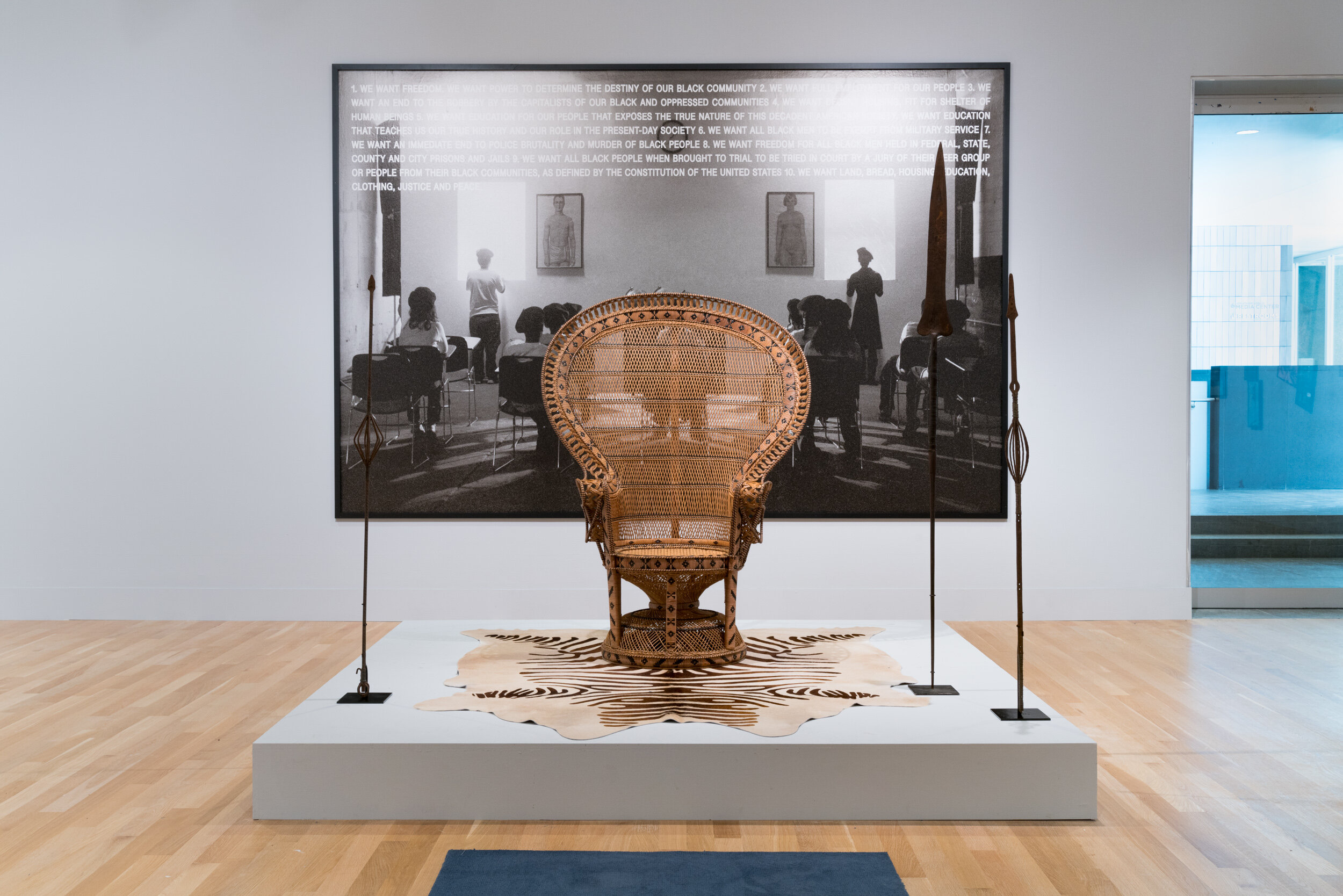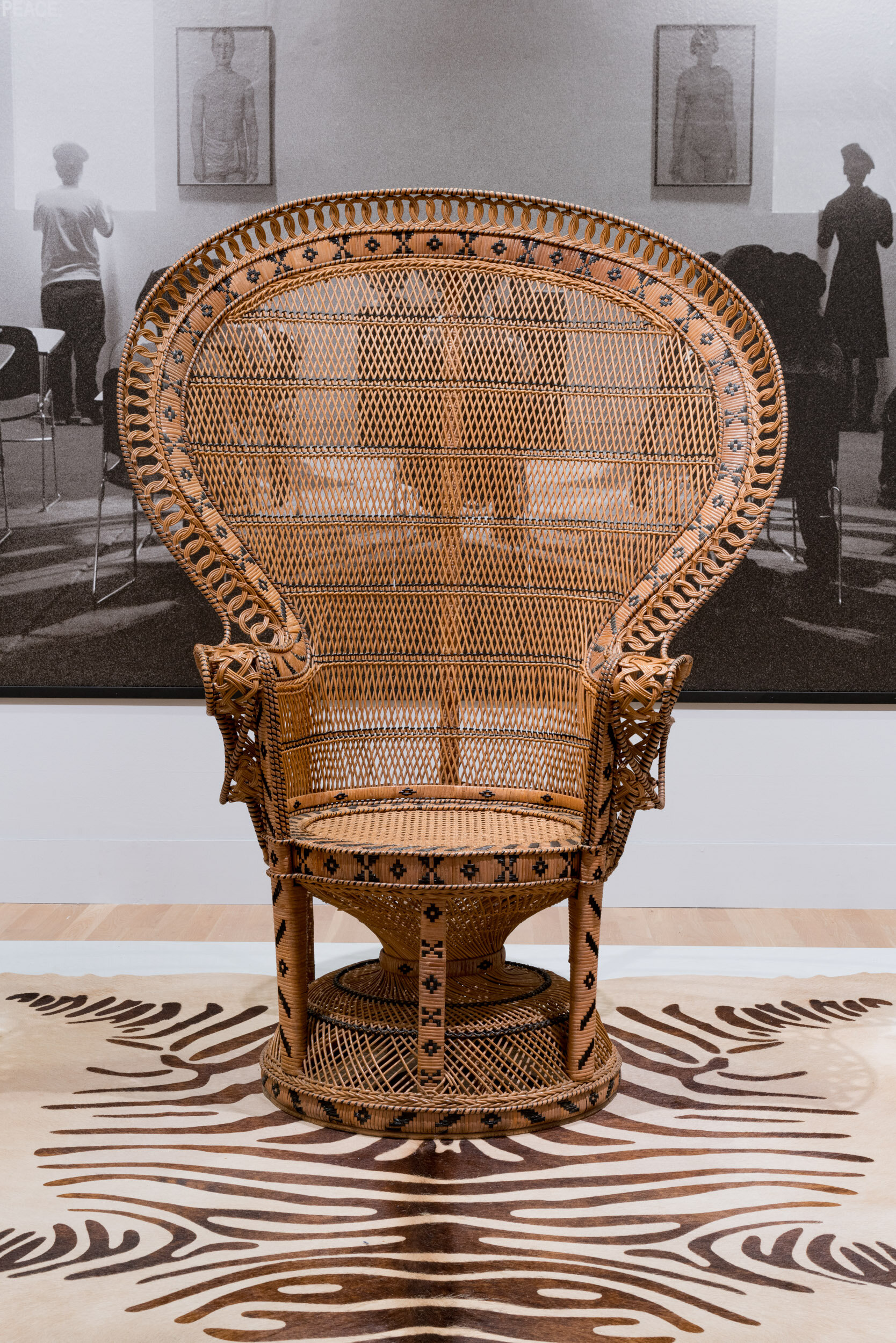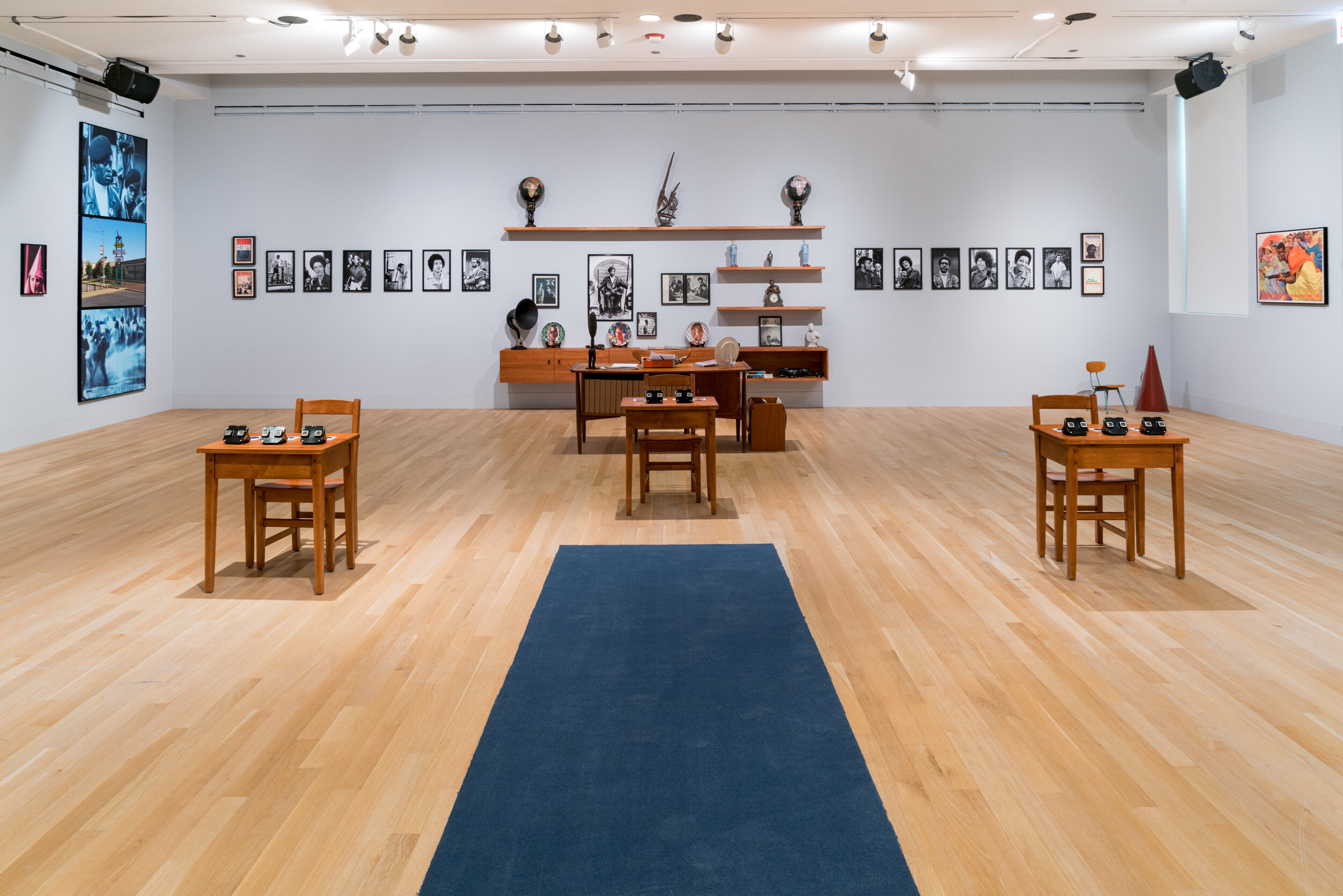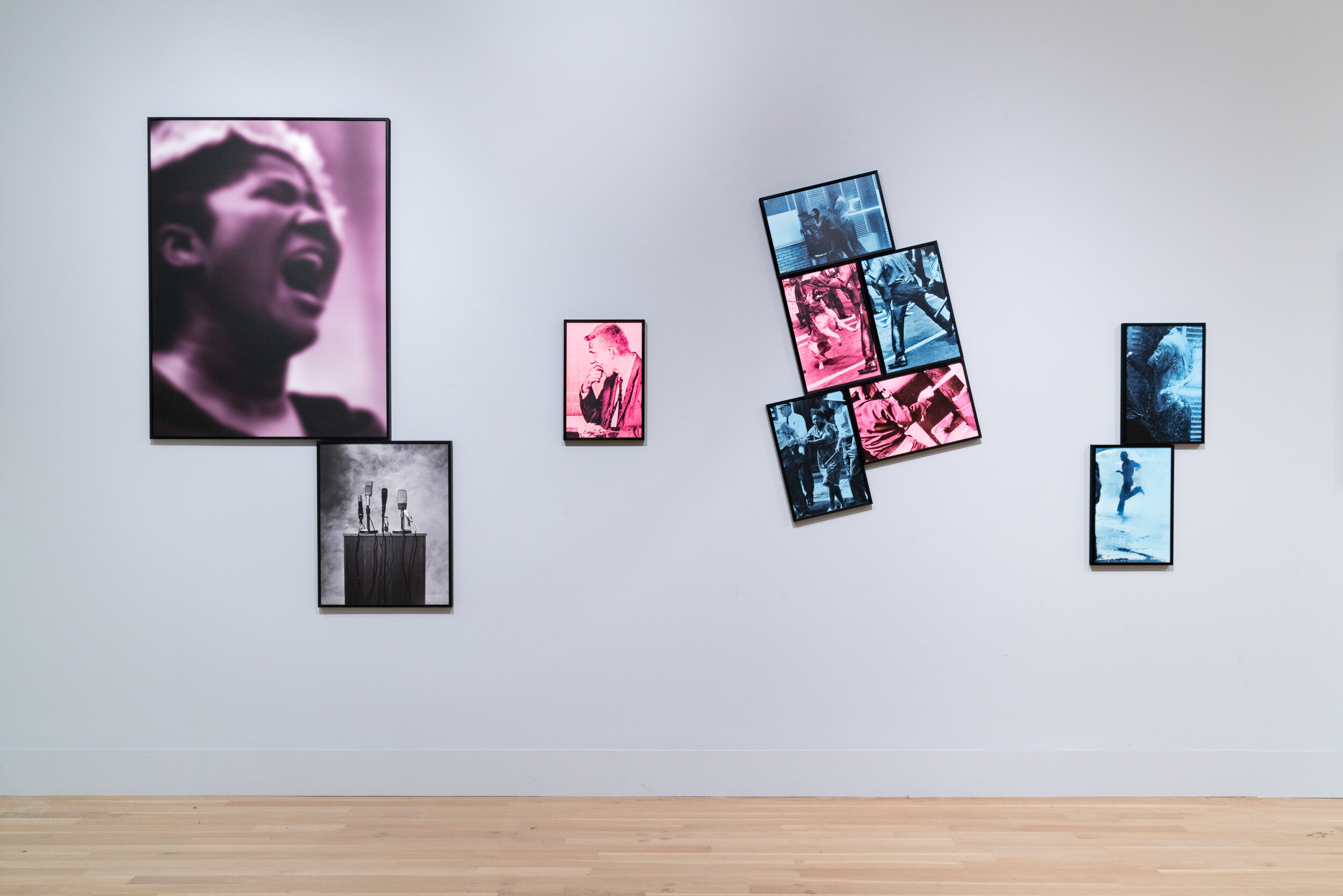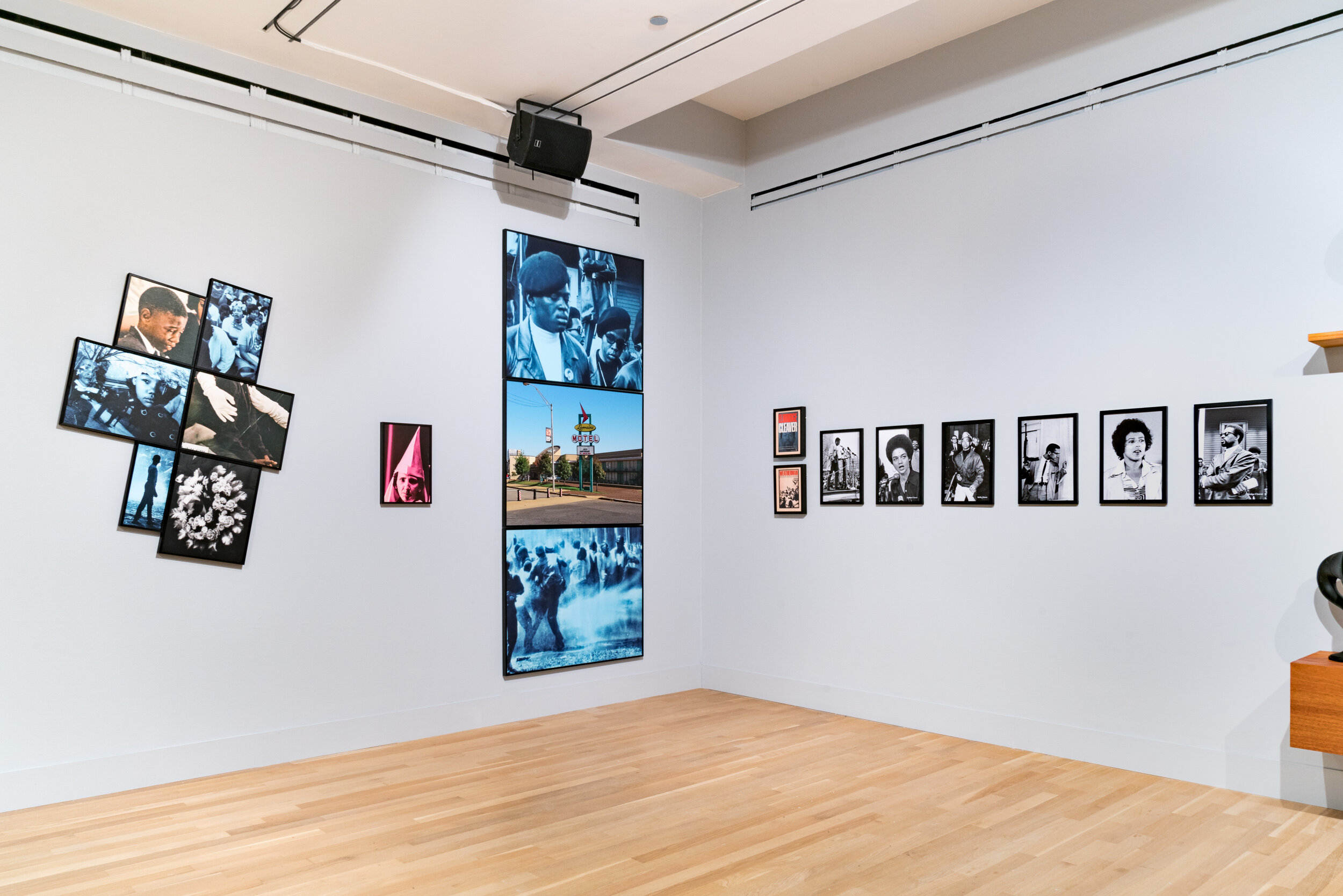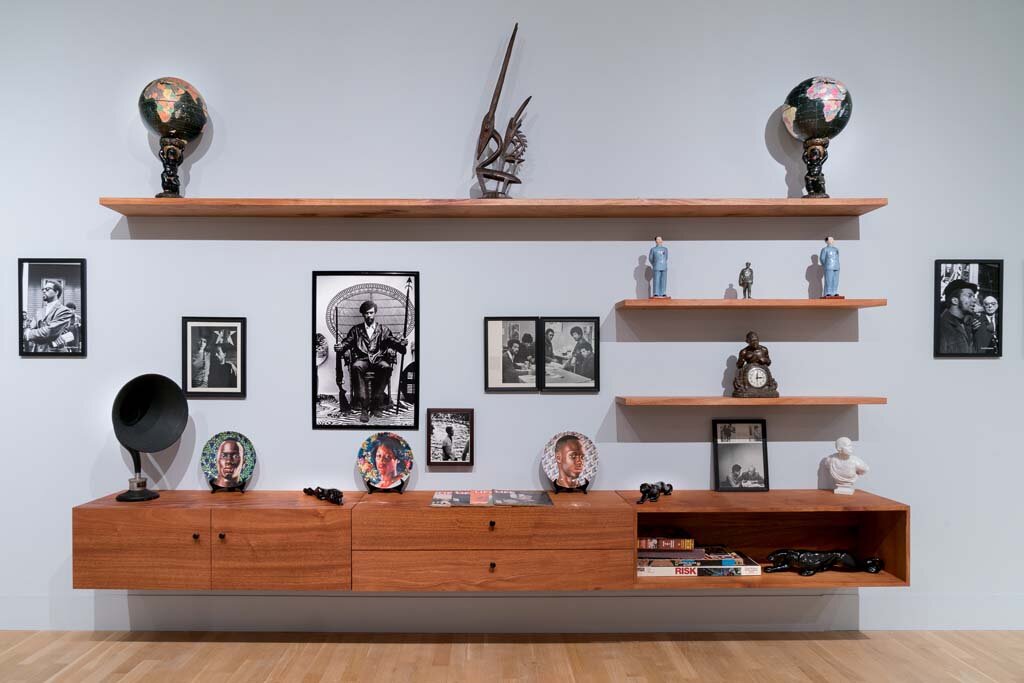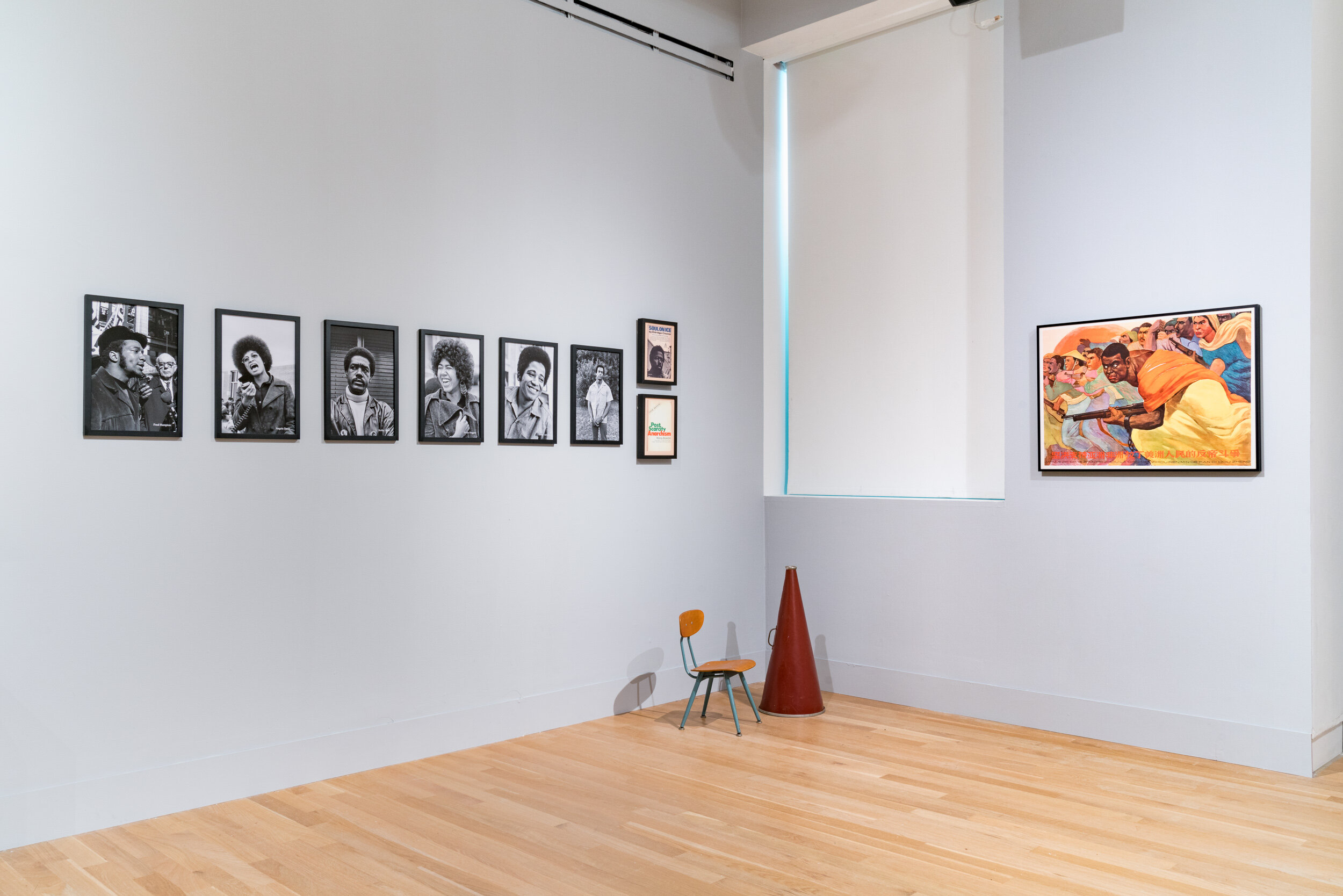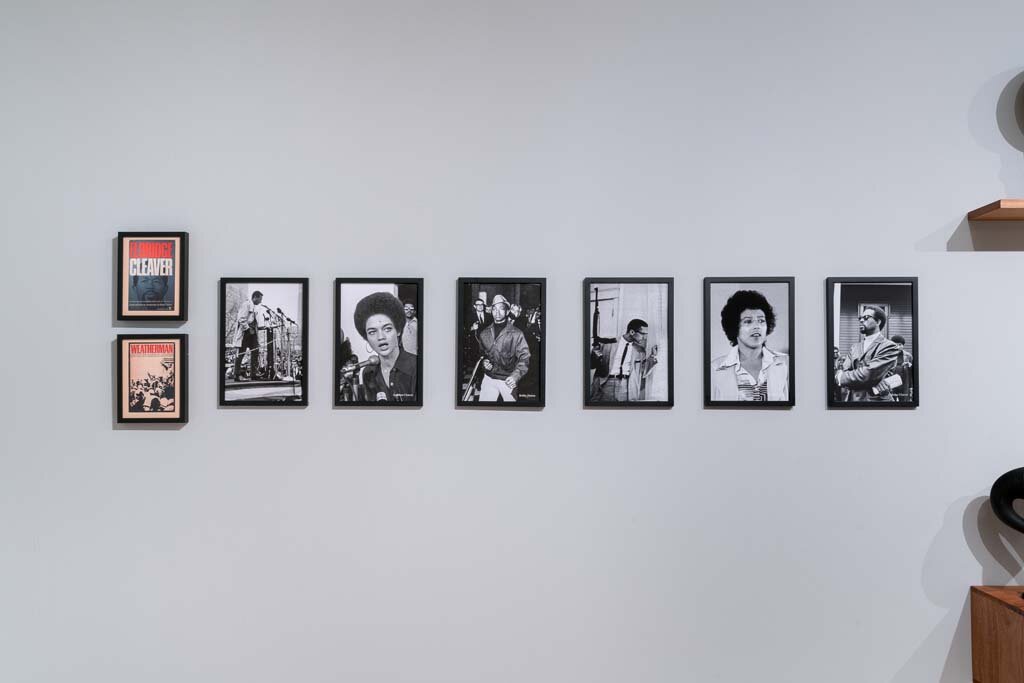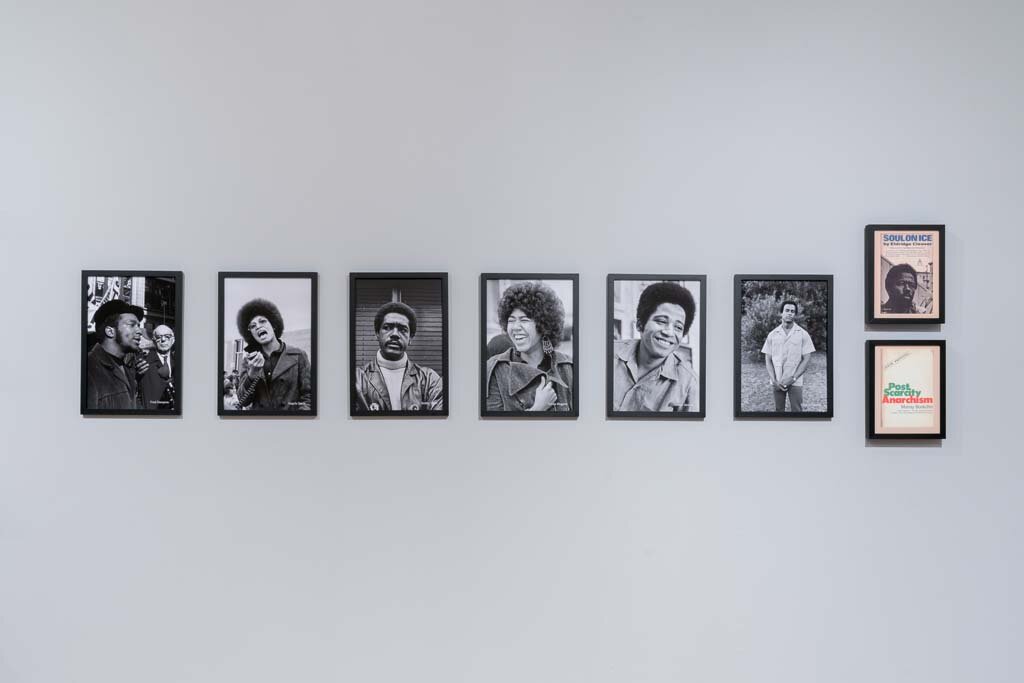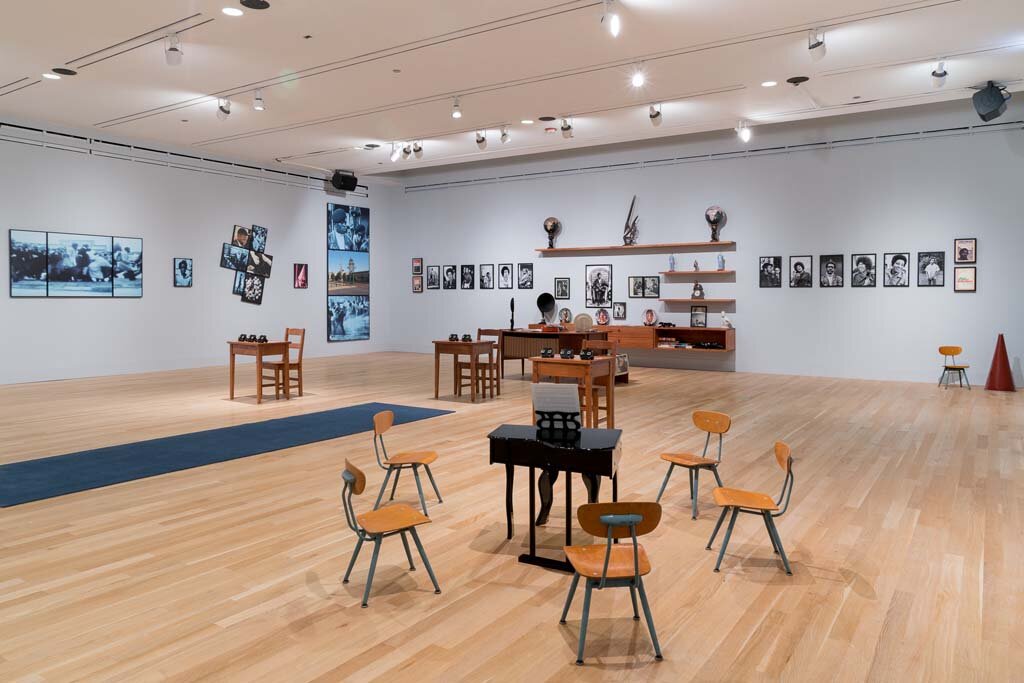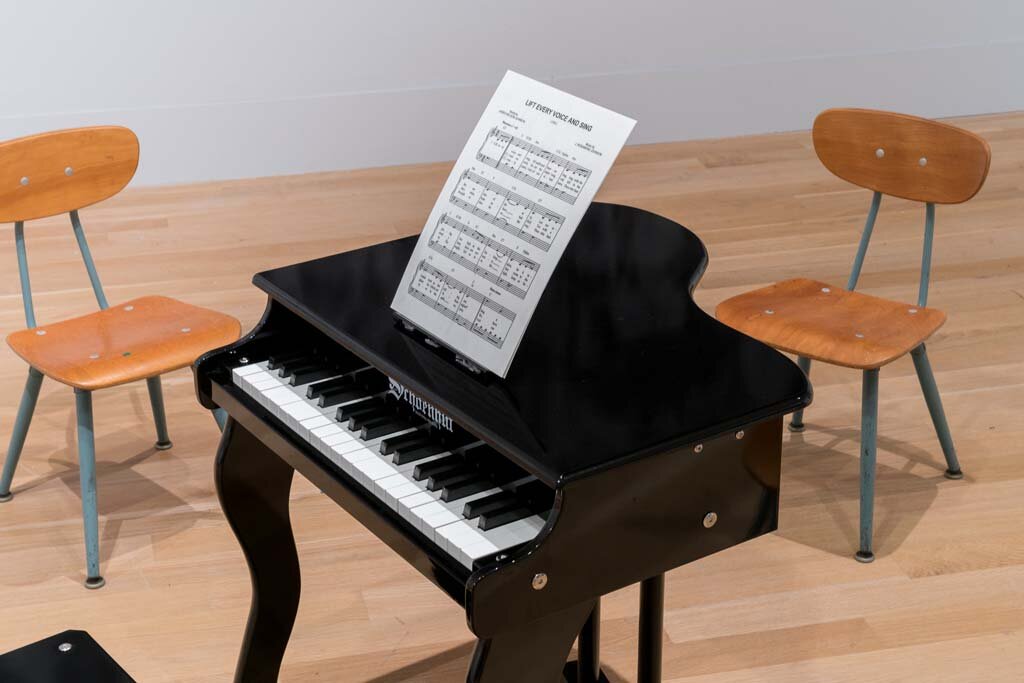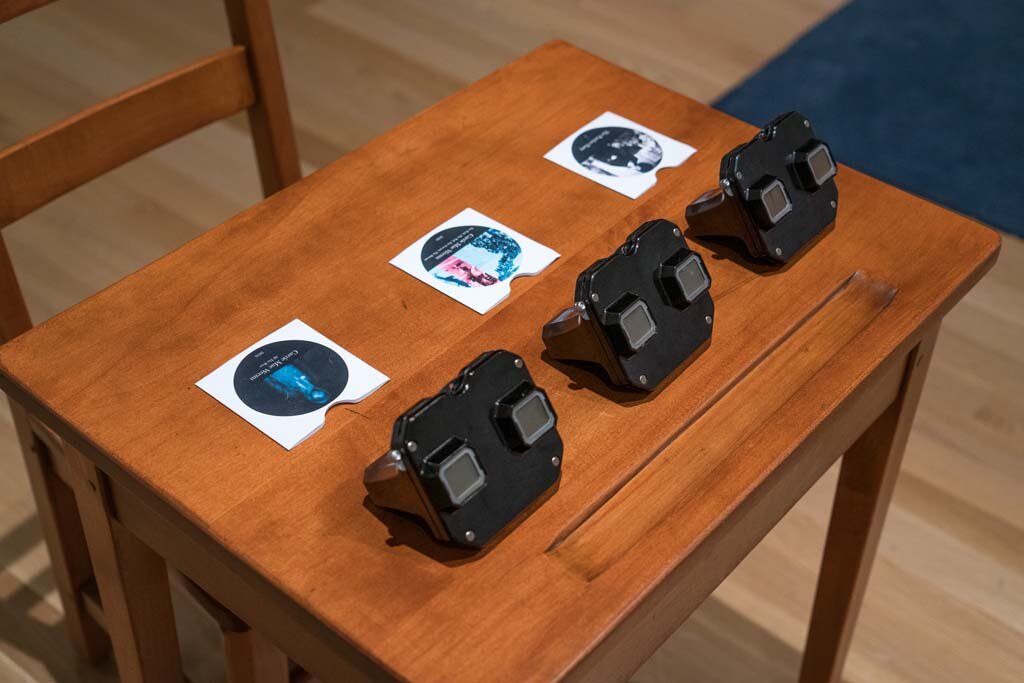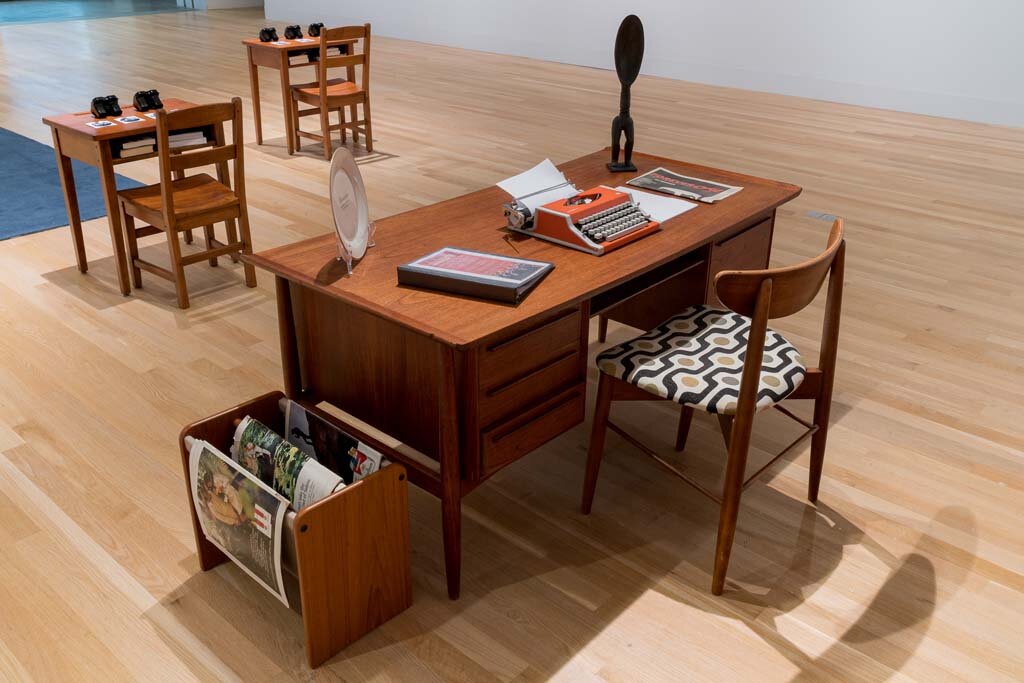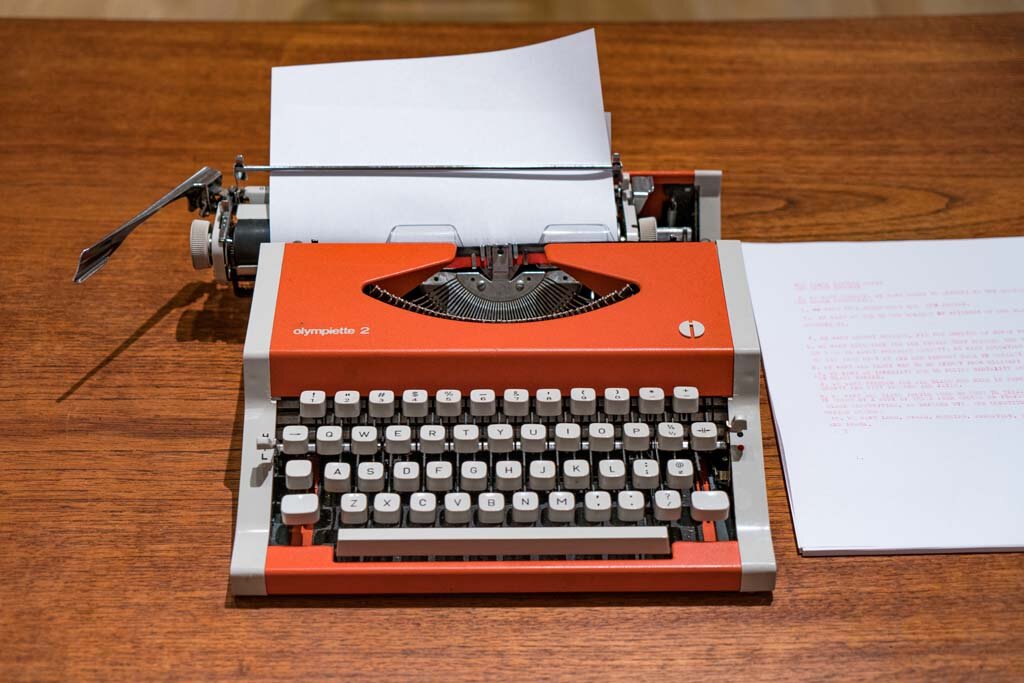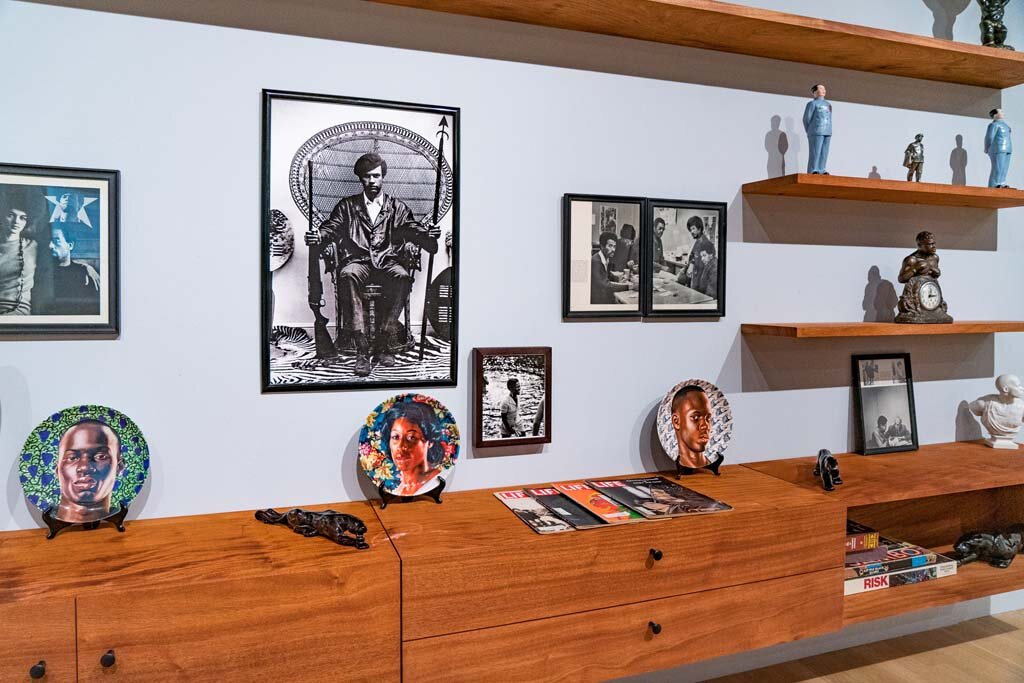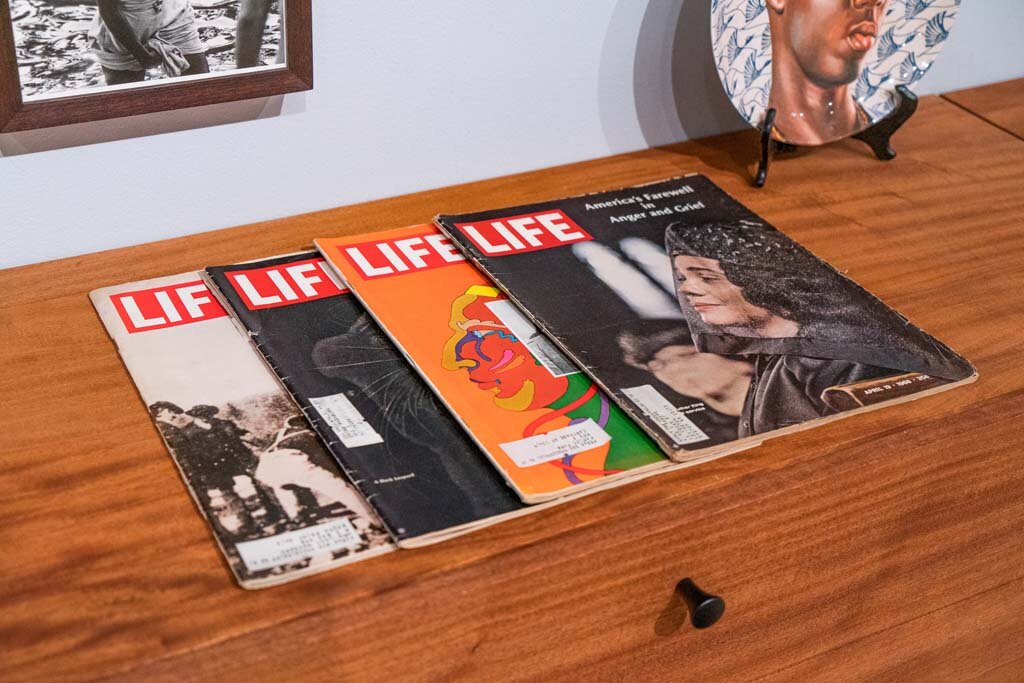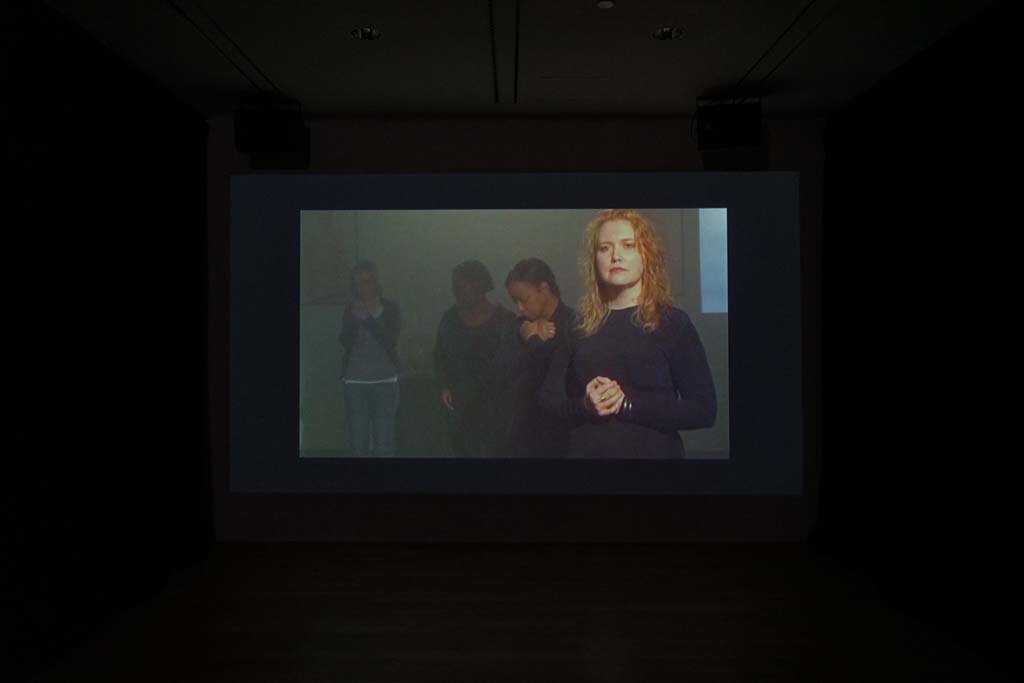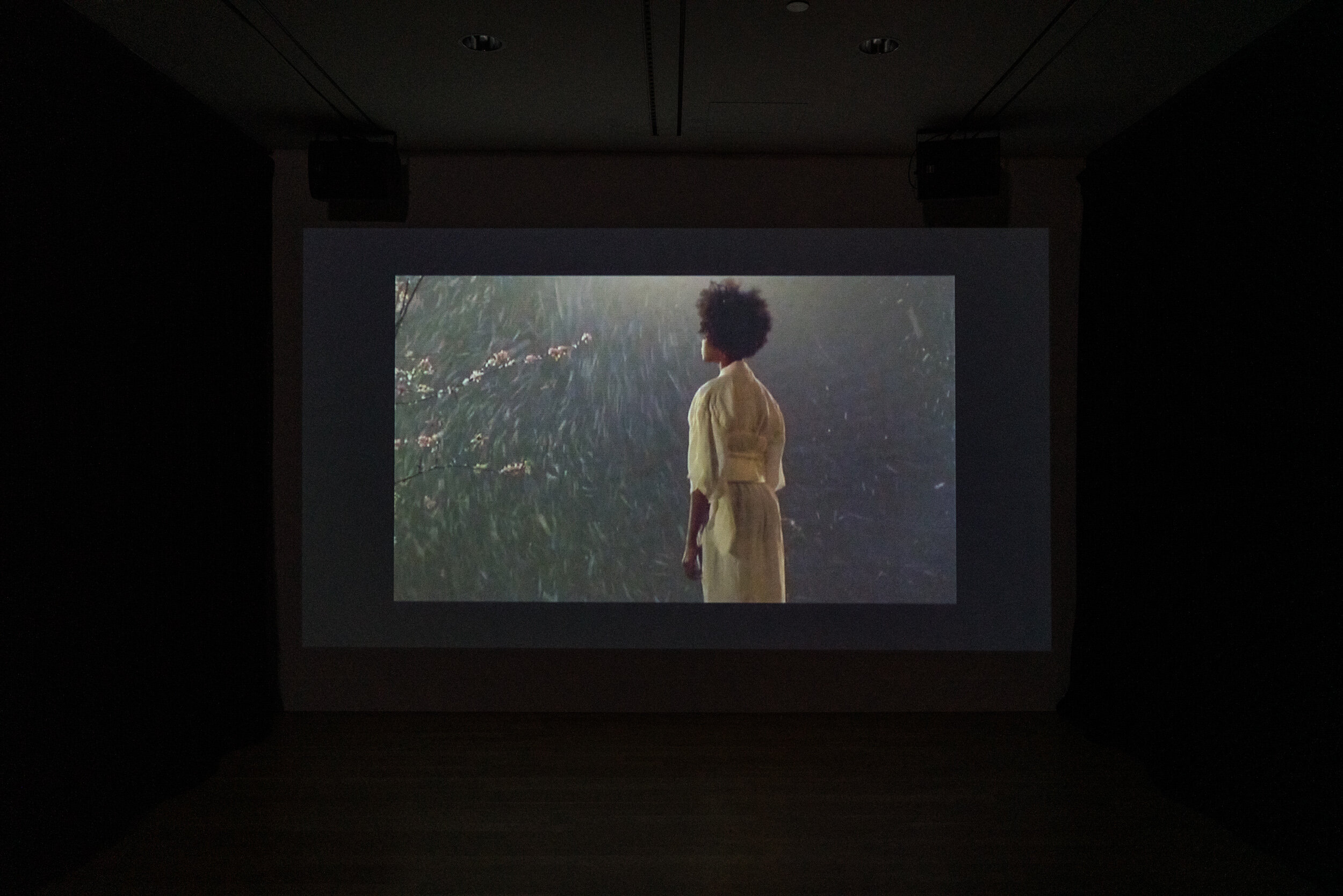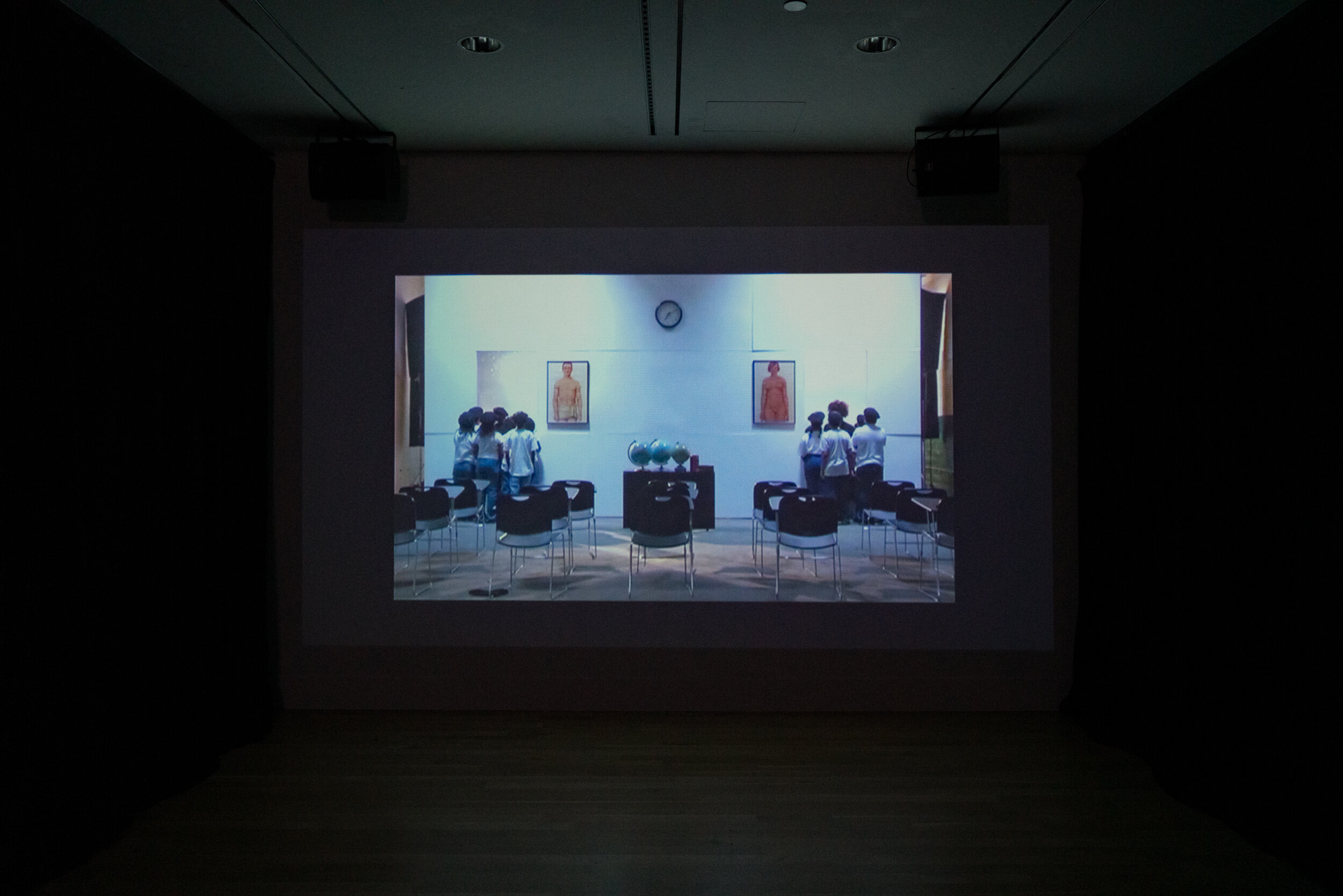Carrie Mae Weems: A Land of Broken Dreams
An Initiative of Toward Common Cause
July 17 - December 12, 2021
Installation view, Logan Center Gallery. Photo by Robert Chase Heishman
Carrie Mae Weems: A Land of Broken Dreams is presented by Logan Center Exhibitions in conjunction with the multi-site exhibition Toward Common Cause: Art, Social Change, and the MacArthur Fellows Program at 40, which explores the extent to which certain resources—air, land, water, and even culture—can be held in common. Raising questions about inclusion, exclusion, ownership, and rights of access, this project considers art’s vital role in society alongside its calls for vigilance in defending shared resources. Deploying the MacArthur Fellows Program as an “intellectual commons,” Toward Common Cause features new and recontextualized work by twenty-nine visual artists who have been named Fellows since the award program’s founding forty years ago, in 1981.
Carrie Mae Weems’s installation at the Logan Center Gallery features an array of media and objects—photography, video, texts, bric-a-brac, and furniture—through which Weems reimagines the Black Panther Party’s programs for young people in Chicago during the late 1960s and early 1970s. In the main gallery, visitors are invited to browse, sit, and explore a classroom setting replete with desks, chairs, books, a blackboard, View-Masters, and posters of historic Black leaders. A smaller gallery space, designed to resemble a theater, will screen video works by Weems. As a whole, this presentation probes notions of education and ideals for political parties, revolutions, and their leaders.
Carrie Mae Weems: A Land of Broken Dreams is presented by Logan Center Exhibitions in collaboration with the Smart Museum of Art at the University of Chicago and is curated by Abigail Winograd, MacArthur Fellows Program Fortieth Anniversary Exhibition Curator; with Alyssa Brubaker, Exhibitions Manager; and Leigh Fagin, Senior Director of Programming and Engagement. This exhibition is made possible by support from the John D. and Catherine T. MacArthur Foundation, The Reva and David Logan Foundation, and friends of the Logan Center.
Gallery Hours
Tuesday-Saturday: 9am-9pm
Sunday: 11am-9pm
About Carrie Mae Weems
Through image and text, film and performance, and her many convenings with individuals across a multitude of disciplines, Carrie Mae Weems has created a complex body of work that centers on her overarching commitment to helping us better understand our present moment by examining our collective past.
Weems has received numerous awards, grants, and fellowships, including a MacArthur Award; a US Department of State Medal of Arts; a Joseph H. Hazen Rome Prize from the American Academy in Rome; a National Endowment for the Arts Fellowship; and a Louis Comfort Tiffany Award, among many others. Major solo exhibitions of Weems’s work include Carrie Mae Weems: The Museum Series, Studio Museum in Harlem, New York (2014), and Carrie Mae Weems: Three Decades of Photography and Video, Frist Center for the Visual Arts, Nashville (2013–14; traveled to: Portland Art Museum, Oregon; Cleveland Museum of Art, Ohio; Cantor Center for Visual Arts, Stanford University; Guggenheim Museum, New York).
Her work is in public and private collections around the world, including at the Metropolitan Museum of Art, New York; Tate Modern, London; the Museum of Modern Art, New York; and Museum of Contemporary Art, Los Angeles. Weems has been represented by Jack Shainman Gallery, New York. She lives in Syracuse, New York, with her husband, Jeffrey Hoone, who is executive director of Light Work.
Black Panther Party (BPP) Selected Bibliography
Compiled by Tracye A. Matthews, Executive Director of the Center for the Study of Race, Politics and Culture at the University of Chicago
Photography
Baruch, Ruth-Marion. The Vanguard: A Photographic Essay on the Black Panthers. Photographs by Pirkle Jones. Boston: Beacon Press, 1970.
Baruch, Ruth-Marion. Black Panthers, 1968. Photographs by Pirkle Jones. Los Angeles: Greybull Press, in association with Distributed Art Publishers/D.A.P., 2002.
Durant, Sam, ed. Black Panther: The Revolutionary Art of Emory Douglas. New York: Rizzoli, 2014.
Diouf, Sylviane A., and Komozi Woodward, eds. Black Power 50. New York: The New Press, 2016.
Shames, Stephen, and Bobby Seale. Power to the People: The World of the Black Panthers. New York: Abrams, 2016.
Shih, Bryan, and Yohuru R. Williams. The Black Panthers : Portraits from an Unfinished Revolution. New York: Nation Books, 2016.
Walker, David F. The Black Panther Party: A Graphic Novel History. Illustrated by Marcus Kwame Anderson. Berkeley: Ten Speed Press, 2021.
Local History of the BPP
The Murder of Fred Hampton. Chicago: Facets Multimedia, 2007. Videodisc, 88 min.
Williams, Jakobi. From the Bullet to the Ballot: The Illinois Chapter of the Black Panther Party and Racial Coalition Politics in Chicago. Chapel Hill : University of North Carolina Press, 2013.
Haas, Jeffrey. The Assassination of Fred Hampton: How the FBI and the Chicago Police Murdered a Black Panther. 2009. Revised paperback edition, Chicago: Lawrence Hill Books, 2019.
BPP Members Political Education
Fanon, Frantz. The Wretched of the Earth. 1961. First English edition, New York, Grove Press, 1963.
“Quotations from Chairman Mao Tse-tung.” 1966. Mao Tse-tung Internet Archive. Accessed August 1, 2021. https://www.marxists.org/reference/archive/mao/works/red-book/index.htm.
Black Panther Party. “Black Panther Reading List.” 1968. Collins Library, University of Puget Sound. https://research.pugetsound.edu/c.php?g=782488&p=5607493
Women in the BPP
Blain, Keisha N. “Introduction to the #Blackpanthersyllabus.” Black Perspectives. February 20, 2016. https://www.aaihs.org/blackpanthersyllabus/
Collier-Thomas, Bettye, and V. P. Franklin, eds. Sisters in the Struggle: African American Women in the Civil Rights–Black Power Movement. New York: New York University Press, 2001.
Gore, Dayo F., Jeanne Theoharis, and Komozi Woodard, eds. Want to Start a Revolution? Radical Women in the Black Freedom Struggle. New York: New York University Press, 2009.
Jones, Charles C., ed. The Black Panther Party (Reconsidered). Baltimore: Black Classic Press, 1998.
Spencer, Robyn C. The Revolution Has Come: Black Power, Gender, and the Black Panther Party in Oakland. Durham, NC: Duke University Press, 2016.
Tillet, Salamishah. “The Panthers’ Revolutionary Feminism.” New York Times. October 2, 2015. https://www.nytimes.com/2015/10/04/movies/the-panthers-revolutionary-feminism.html?mcubz=2.
Primary Sources
Foner, Philip Sheldon. The Black Panthers Speak. 1970. Reprint, New York: Da Capo Press, 1995.
Newton, Huey P. To Die for the People: The Writings of Huey P. Newton. New York: Random House, 1972.
Newton, Huey P., with the assistance of J. Herman Blake. Revolutionary Suicide. 1973. Reprint, New York: Penguin Books, 2009.
Hilliard, David. The Black Panther: Intercommunal News Service, 1967–1980. Paperback edition, New York: Atria Books, 2007.
Hilliard, David, ed. The Black Panther Party: Service to the People Programs. Albuquerque: University of New Mexico Press, 2008.
